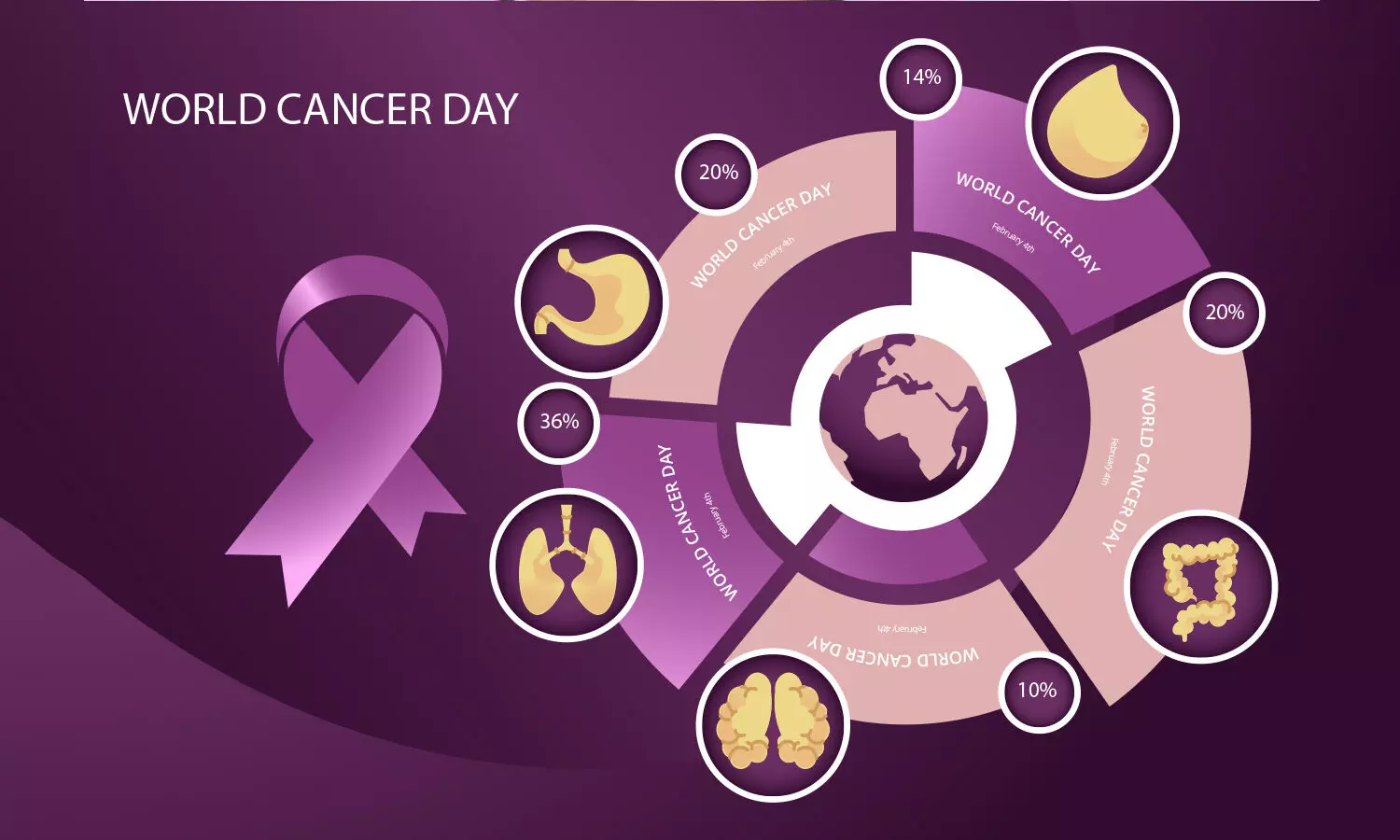World Cancer Day 2024: 5 common factors leading to breast cancer in women

While genetics, hormones, lifestyle, and age impact breast cancer risk, early detection remains key. By understanding these factors and prioritizing regular screenings, we can empower ourselves and fight this disease together.
Every year on February 4th, we mark World Cancer Day, a global movement to raise awareness, improve education, and accelerate progress in the fight against cancer. In 2024, the theme is "Closing the Gap: Access to Quality Cancer Care." This year, let's focus on understanding breast cancer, a prevalent form of the disease among women. While the exact cause of breast cancer remains unknown, several factors can increase a woman's risk. Here are five common reasons why women get breast cancer:
1. Genetic Predisposition: Unfortunately, some of us inherit a higher risk of developing breast cancer from our parents. Mutations in specific genes, like BRCA1 and BRCA2, can significantly increase this risk. If you have a family history of breast cancer, especially among close relatives, talking to your doctor about genetic testing is crucial.
2. Hormonal Influences: Throughout a woman's life, hormones play a significant role in breast development and function. Exposure to estrogen for longer periods can elevate the risk of breast cancer. This includes factors like starting menstruation at a young age, having your first child later in life, or using hormone replacement therapy after menopause.
3. Lifestyle Choices: While genetics and hormones play a significant role, we also have some control over our risk through our lifestyle choices. Maintaining a healthy weight, especially after menopause, can significantly reduce the risk. Being physically active regularly and limiting alcohol consumption are also crucial steps.
4. Breast Tissue Density: The composition of breast tissue can also influence risk. Women with dense breast tissue have a higher chance of developing cancer, although the exact cause-and-effect relationship is still being studied. Regular mammograms become even more important for women with dense breasts.
5. Age: As we age, our risk of developing cancer, including breast cancer, naturally increases. This is partly due to accumulated cellular damage over time. Early detection through regular screenings becomes even more critical with increasing age.
It's important to remember that:
These are just common risk factors, and not everyone with these factors will develop breast cancer.
Many women with no known risk factors also develop breast cancer.
Early detection is key to successful treatment and survival.
What can you do?
Be aware of your family history and talk to your doctor about any concerns.
Maintain a healthy lifestyle with regular exercise, a balanced diet, and limited alcohol.
Schedule regular mammograms and breast exams based on your doctor's recommendations.
Stay informed and empower yourself with knowledge about breast cancer.
Together, by understanding the risks, making informed choices, and promoting early detection, we can fight against breast cancer and save lives. Remember, World Cancer Day is not just a day, but a call to action for all of us to work towards a world free from this disease.















